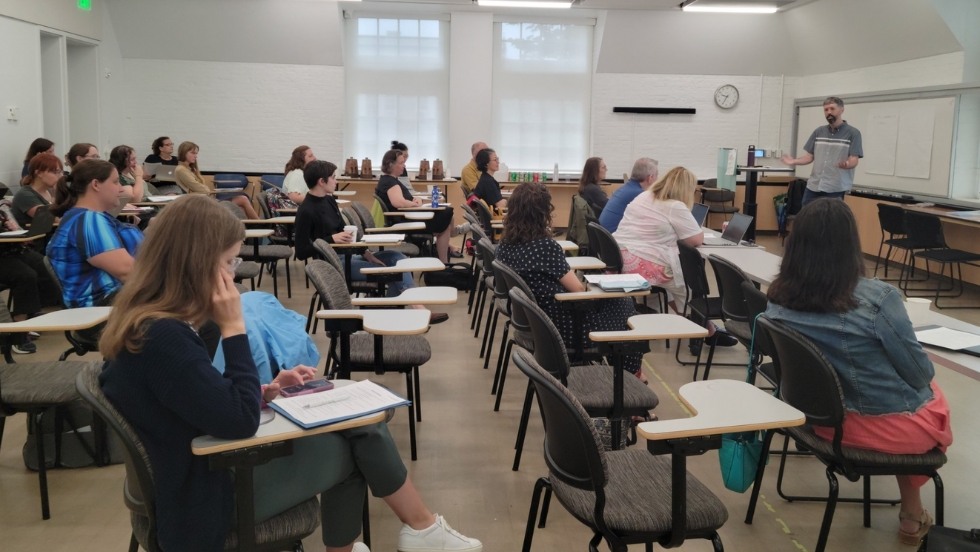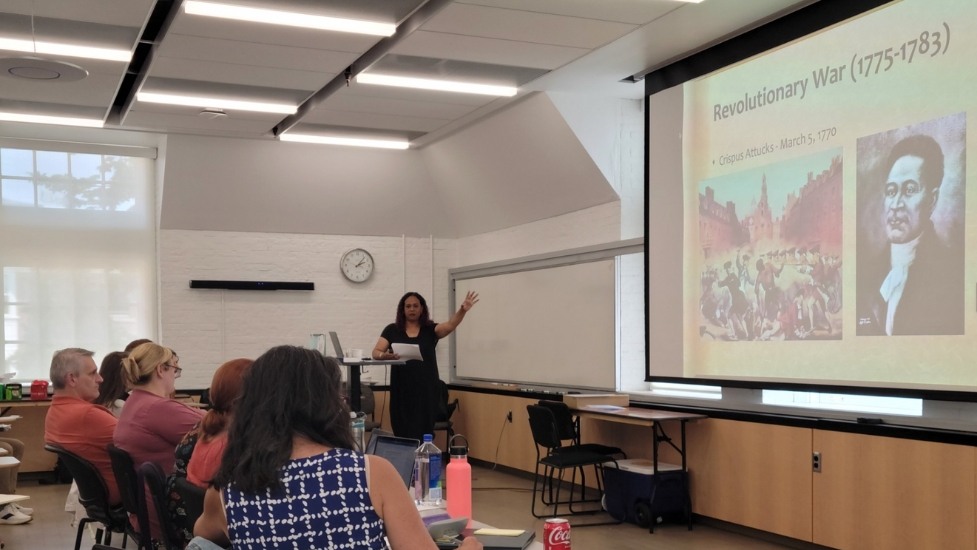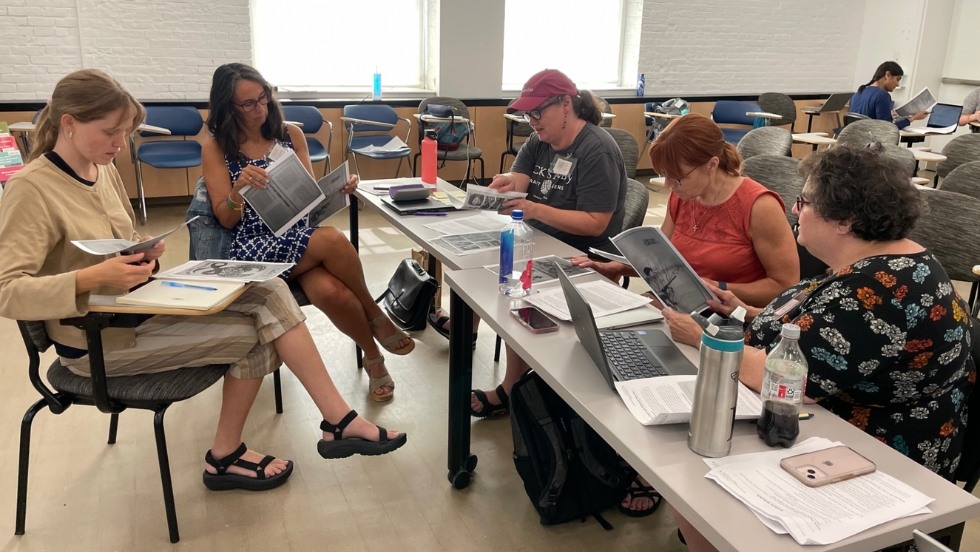Kerry Dunne, known as Dr. Dunne to her high school students, is the History and Social Studies Department Head at Lexington High School in Massachusetts where she teaches 10th grade Modern World History and an 'Introduction to the Law' elective course.
Over the past 25 years, Dunne has taught or been an academic administrator in various public schools across Massachusetts — including Framingham, Arlington, Boston, Weston, and now Lexington. At the start of her career, she taught for one year in Japan through the government's Japanese Exchange and Teaching Programme (JET). Dunne earned her Doctorate in Education in 2012 from Boston College, where she now teaches as an adjunct faculty member.
Brown History Department: Why were you initially interested in participating in Choices' summer program?
Kerry Dunne: This is the sixth National Endowment for the Humanities (NEH) summer institute I have participated in and I always have my eyes out for these excellent professional development opportunities. I applied for this particular institute because I have used Choices Program curriculum resources so many times over the years and I think very highly of the organization and their curriculum products. Additionally, I love the city of Providence, and my sister lives here, so I liked the idea of spending a week in Providence this summer.
Brown History Department: What was the biggest takeaway from the Institute and how will it impact your upcoming teachings?
Kerry Dunne: Oh wow, great question! We are only at day two and I have already learned so much. One takeaway for sure is that I will be recommending excerpts from Dr. Kara Dixon Vuic's books on American women's roles in 20th Century wars. They are so engaging and I think excerpts from them would work with high schoolers. And, we need to incorporate more women's history in our core courses, so this is a perfect opportunity to do this.
Brown History Department: What was your favorite part of the week? Was there something particularly eye-opening that you were excited to learn about?
Kerry Dunne: I loved our visit to the Hay Library at Brown University to learn about their special collections. It was very exciting to put on gloves and use "cradles" and string weights to examine original copies of interesting primary source documents ourselves. I work with primary sources all the time with my students, but usually they are digital or print copies, not the originals, so this was unusual and exciting for me.
Brown History Department: Would you recommend the Institute to other K-12 educators?
Kerry Dunne: Yes, absolutely! Every social studies educator should know about the Choices Program units — both the student-facing booklets and the teacher resources. They are tried and true and promote learning about the complexity and nuance of historical and current events, and they give students the tools to participate in academic conversations and debate. The access to resources at Brown and spending time in the wonderful city of Providence are the icing and the flowers on the cake. I hope this program runs again, and I will certainly encourage fellow teachers to apply!
— Dana Sutcliffe


